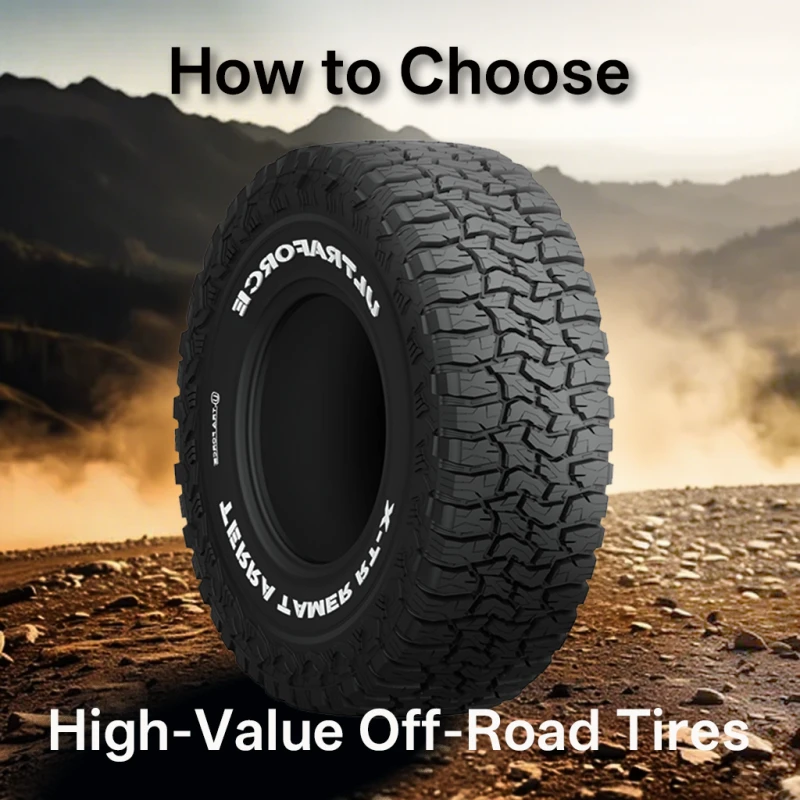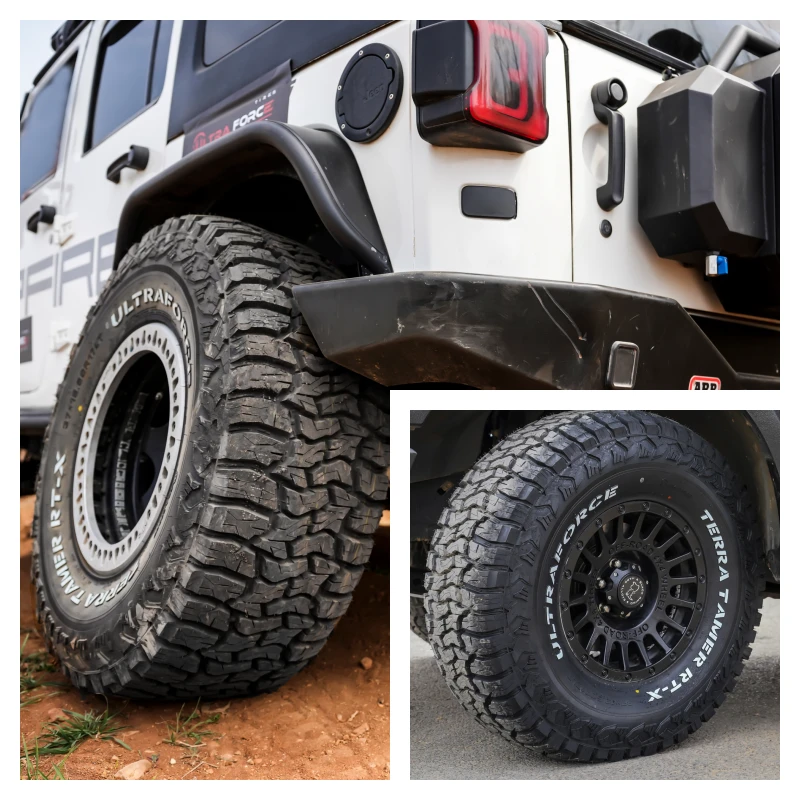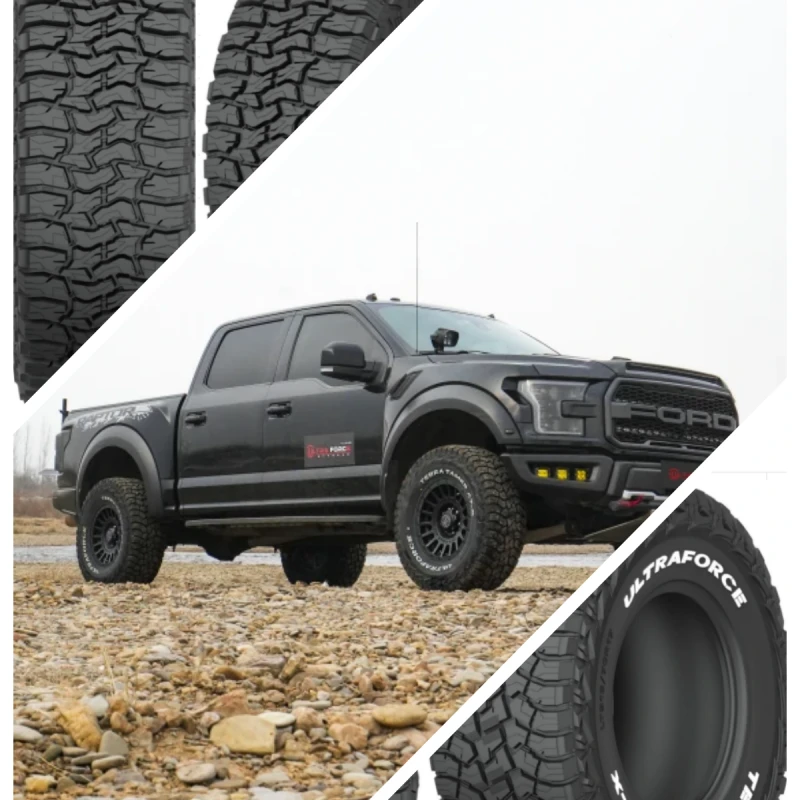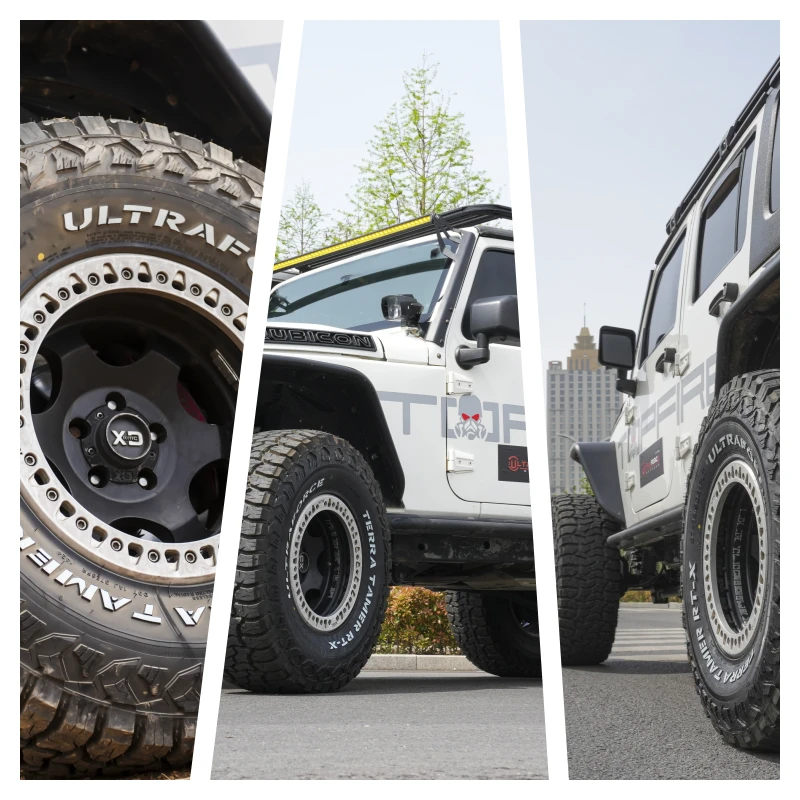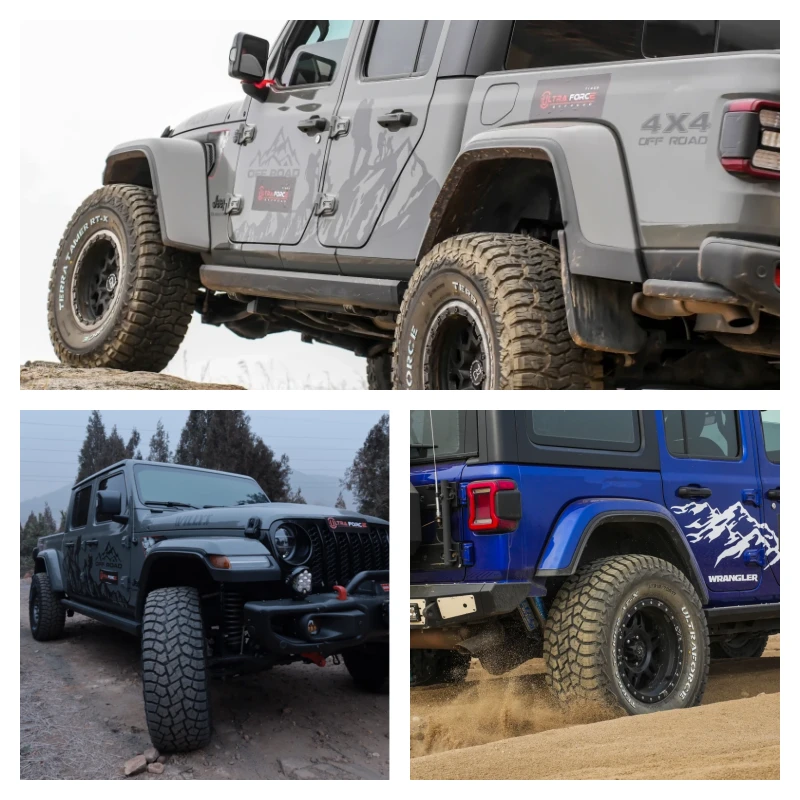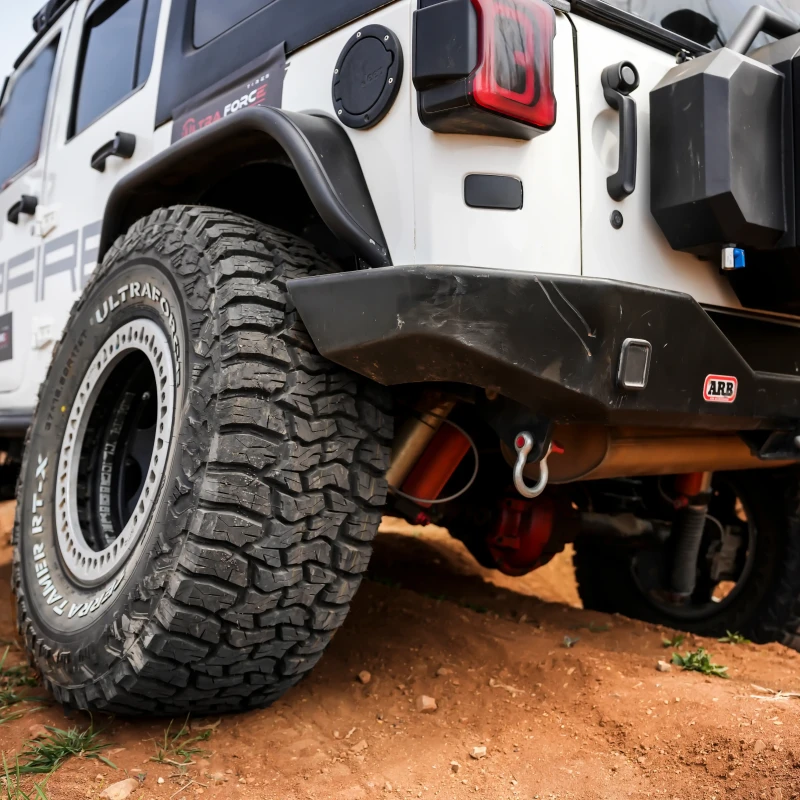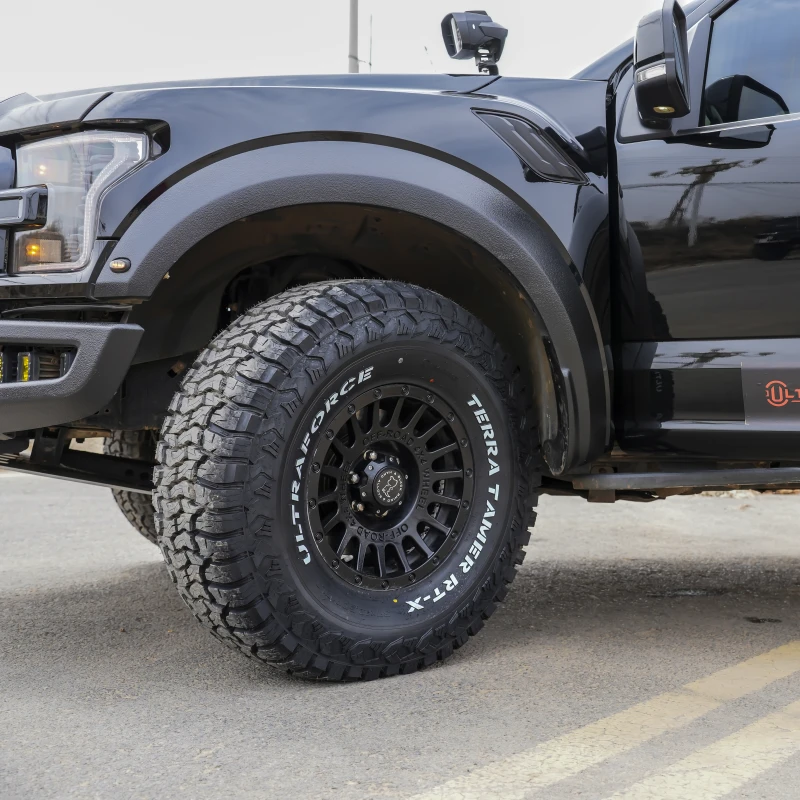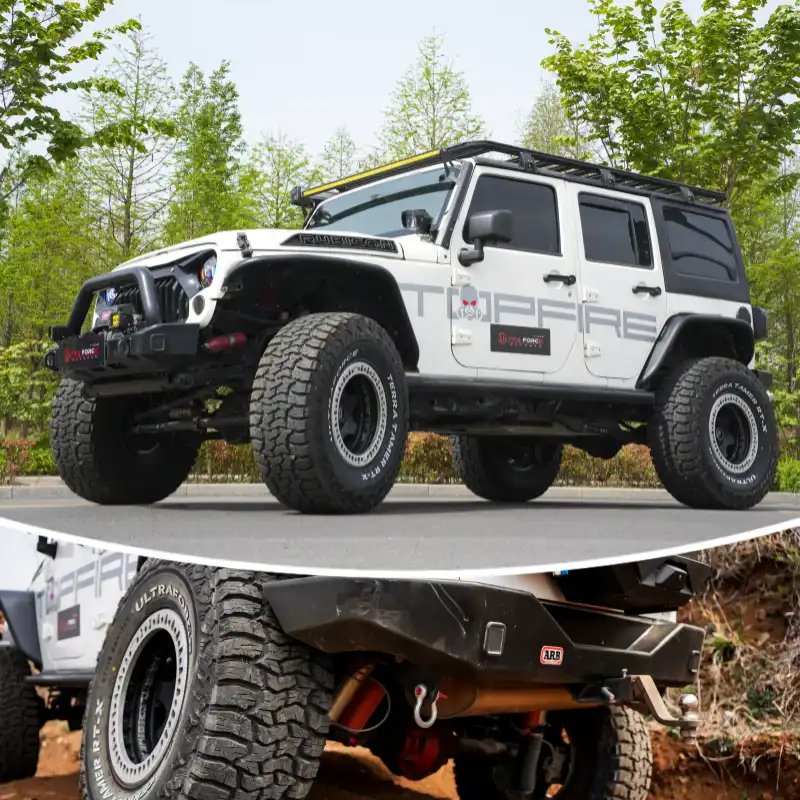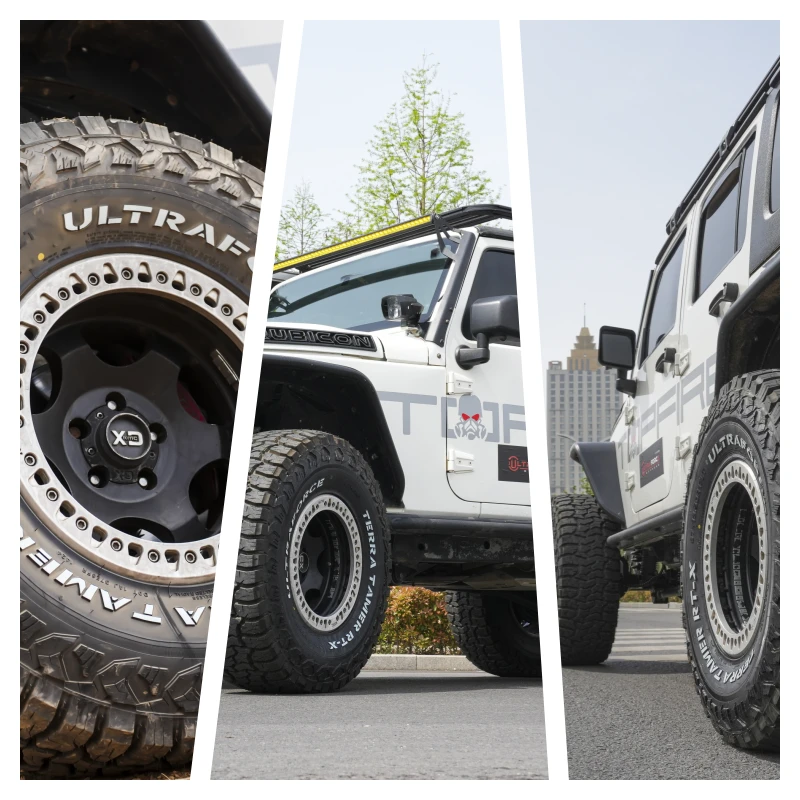Choosing the right off‑road tires can feel like decoding a secret language: aggressive tread, sidewall ply, compound hardness, warranty coverage, mileage expectations—the list goes on. But let’s strip it down. At base, you’re juggling price, performance, and **intended usage. Every decision point reflects back to those pillars. And if you’ve heard of UltraForce Tires, you’ll know we're all about delivering high-value—balancing premium results without premium inflation.
1. Know Your Terrain: The Starting Point of All Good Decisions
First, ask yourself: where exactly will my tires roam?
| Terrain Type | Key Requirement | Typical Tire Type | Expected Mileage |
|---|---|---|---|
| Sand & loose dirt | Scooped tread, sidewall strength | Sand‑specialized AT/MT | 30–40k mi |
| Rocks & gravel | Chunk resistance, reinforced sidewalls | Mud‑Terrain (MT) | 25–35k mi |
| Mixed w/ pavement | Balanced tread, comfort on asphalt | All‑Terrain (AT) | 40–60k mi |
| Deep mud & snow | Deep lugs, traction blocks | Aggressive MT | 20–30k mi |
Mixed terrain users can chase all-terrain tires for longevity—but when slabs of pavement dominate, expect 50–70k miles; deep‑mud specialists may only get 20–40k, especially if you slide through city streets.
2. Price Versus Value: What You’re Really Buying
Sure, a lower sticker means a lower entry cost—but if the tire bites back with fast wear, poor warranty, or replacements galore, value drops fast.
Cost-per-mile is your friend here. For instance:
Budget MT @ $200 tires, 20,000 mi = $0.01/mi
Mid‑tier AT @ $250 tires, 50,000 mi = $0.005/mi
Double the mileage, half the per‑mile cost—even if upfront is higher.
UltraForce designs tires to maximize durability and longevity, so while the upfront is reasonable, the mileage return is competitive—helping consumers see real, measurable value.
3. Mileage & Lifespan: Durability Meets Reality
What do real‑world experiences say?
All‑terrain tires: 40–60k miles in mixed use; up to 70k in primarily pavement road trips
Mud‑terrain tires: 20–40k miles, heavily depending on use
Some rare stories of 160,000 km (~100k miles): exceptional but uncommon
And among user testimonials:
“Mud tires get progressively less smooth… I usually get 25–30k before they get too hard to balance.”
“I got 55k miles out of Back Country A/T tires before I got a severe flat.”
That wide range shows variability—terrain, maintenance, rotations, load, compound—all shape performance.
4. Performance Metrics: Grip, Wear, Noise, Fuel Economy
Let’s look at how tire design toggles trade‑offs:
| Metric | MT (Aggressive) | AT (Balanced) | UltraForce Value Notes |
|---|---|---|---|
| Off‑road traction | ★★★★★ deep lugs, excellent in mud/rocks | ★★★★ moderate traction | Tunable compound & tread per terrain |
| On‑road comfort | ★★ high noise, stiff sidewalls | ★★★★ quieter, more comfort | Engineered tread blocks for comfort |
| Wear Resistance | ★★ softer compound wears faster | ★★★★ harder compound lasts better | Silica‑reinforced compounds |
| Sidewall Strength | High-ply, rocker protection | Medium-ply, moderate reinforcement | Customizable ply options |
| Fuel Efficiency | Lowest (deep blocks add rolling drag) | Moderate | Balanced rolling resistance |
| Cost-per-mile | Often higher per mile | Lower (due to mileage) | Designed for longevity |
UltraForce lets you specify ply counts, compound hardness, even branding on the sidewall for your intended usage.
5. The Science Behind Longevity
What makes some tires stretch to 50k+ miles while others don’t?
Compound formulation: more silica, heat-resistant additives = less fatigue, less wear
Sidewall construction: 3-ply vs. 2-ply, aramid or nylon reinforces cut resistance
Tread geometry: balanced shoulders, void-to-lug ratios even out wear
Heat management: embedded diffusers reduce thermal breakdown
At UltraForce, our R&D team monitors these factors, ensuring compound, ply, and geometry line up with your terrain stats, whether gravel roads or slick rock.
6. Maintenance: The Value Multiplier
Even top-tier tires won’t last if abused.
Performance drops, lifespan shortens—fast—without rotation, alignment, and psi checks.
Rotate every 5,000–8,000 miles
Check alignment after off‑road trips
Watch pressure: low psi off‑road, then air up before hitting the highway
Clean mud & debris to prevent tread block buildup and heat retention
When customers choose UltraForce, they benefit from maintenance guidance and professional-level after-sales follow-up.
7. Warranty & Brand Trustworthiness
Price isn’t just dollars today—it’s peace of mind.
Mileage warranties: Many all‑terrain tires offer 60–70k miles, MT rarely exceeds 40k.
Defect coverage: Brands vary in coverage for tread separations, sidewall defects, bumps—but typically ~2–5 years.
UltraForce offers customized endurance warranties aligned with your design spec—whether you need 50k warranty or 30k with tougher compound. You control duration; we stand behind it.
8. Customization: Your Secret Edge
That’s where UltraForce shines:
Tread/sidewall design tailored to sand, gravel, rock, or muddy paths
Size designs from midsize 31″ tires to full-size 37″+
Branding & aesthetic tweaks: sidewall white letters, pattern engraving, trail‑ready colors
Compound tuning: softer or harder depending on heat map of your preferred terrain
Ply configuration: 2‑ply for light trucks, 3‑ or‑4‑ply for HD rigs
So yes, many off‑road tires are “out there,” but UltraForce gives you exactly what you need—no wasted trade-offs.
9. Final Checklist: How to Choose
When you shop, keep your eyes on:
Terrain match: pick the tire that handles your frequent conditions
Expected mileage: divide cost by expected life for cost-per-mile
Warranty details: mileage, defects, pro-rating
Compound & ply info: does it reflect performance targets
Noise and comfort trade-offs: especially if daily-driving
Customizability: can you tweak tread, sidewall, branding?
In short: don’t chase low price—opt instead for value that fits your terrain, mileage, and performance needs.
10. Why UltraForce Tires?
Let’s tie it all together:
Decades of R&D in off-road compound, tread, and sidewall design
Proven durability: application‑tested for 40–60k miles in mixed terrain
Customizable by spec, not by compromise: you decide what matters more
Global manufacturing and export, but personalized service for local needs
Warranty & maintenance support second to none
So: if you want truly high-value off-road tires, start with ground-up design—and end with peace of mind.
Parting Thoughts
Choosing off‑road tires isn’t just shopping—it’s planning. And in that plan, price, performance, and purpose all need to converge.
Will you drive backroads and gravel, or crawl over slick rock? Do you want longevity or low noise? With UltraForce, you don’t have to choose between these things—you customize them. And when maintenance is handled well, premium compound meets real‑world mileage.
So go ahead—skin in the game, get your spec, and let your next set of UltraForce tires carry both your rig and your reputation off-road. High‑value starts here. Contact us today!
